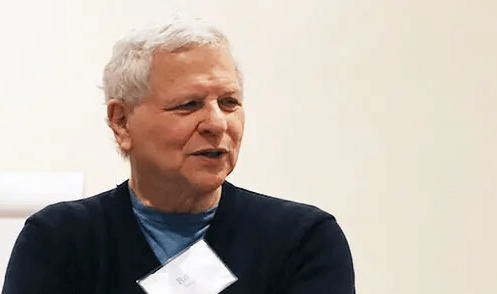Robert Jay Stein was born on Oct. 26, 1943, in Wheeling, W.Va. His father, Charles, owned a chain of lumberyards, and his mother, Janis (Harrison) Stein, was involved in local arts, social service and religious organizations.
He graduated from the Linsly Military Institute (now the Linsly School) in Wheeling before attending Antioch College in Ohio, a hotbed of progressive politics and activism.
The abrupt transition shaped Mr. Stein’s politics.
“It opened my brain to both conservative values and liberal values, and I became respectful of both, even though over time I became more in the liberal camp,” Mr. Stein said in an interview last month.
He went on to the George Washington University Law School in Washington, where he would make his home for the rest of his life.
He worked as a public interest lawyer for 10 years, then helped create or run a series of nonprofit organizations focused on issues including nutrition, refugees, organizational management and voter participation.
Ahead of the 1988 Democratic National Convention, Mr. Stein was recruited to develop a presentation about mobilizing voters. That led to positions as an adviser to the Democratic National Committee under Chairman Ronald H. Brown, and then as chief of staff to Mr. Brown when President Bill Clinton named him commerce secretary in 1993.
Mr. Stein left the Commerce Department shortly before Mr. Brown’s death in a plane crash in 1996 to help start a venture capital fund focused on women-owned businesses. When he formed the Democracy Alliance, he infused it with principles typically associated with venture investing.
In addition to his son Gideon, from his marriage to Mary Ann (Efroymson) Stein, which ended in divorce, Mr. Stein is survived by his wife, Ellen Miley Perry; their daughter, Kat Stein; two other children from his first marriage, Dorothy and Noah Stein; and five grandchildren.
After the Supreme Court’s 2010 Citizens United decision prompted a surge in political spending, much of it funded by undisclosed sources, Mr. Stein grew increasingly concerned that big money was deepening polarization and distrust in government.
While he urged Democrats not to “unilaterally disarm,” he also began talking about ways to bridge partisan divides and reform politics. That became a larger part of Mr. Stein’s focus after Donald J. Trump’s election in 2016.
He advised several groups on building coalitions of donors and operatives across the political spectrum to fight what he saw as a slide into authoritarianism exacerbated by Mr. Trump.
Mr. Stein applied thinking and strategy from the Democracy Alliance to encourage “a new cross-partisan pro-democracy infrastructure,” said Sarah Longwell, a longtime Republican operative who has worked to loosen Mr. Trump’s grip on the party.
“He was especially attentive to those of us on the right who had never had common cause with Democrats,” said Ms. Longwell, who helped create and run two organizations that oppose Mr. Trump and his allies: the Bulwark website and the political group Defending Democracy Together.
She said Mr. Stein, whom she considers a mentor, was “a relentless cheerleader for the project of democracy.”

